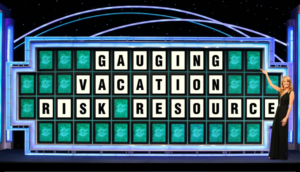Gauging Vacation
July 2021 Newsletter | By: Ian Sachs, CFP®, CLU®
View on LinkedIn
Ask yourself, can you move a few things around in your schedule to take your family on vacation a week from now? How are you gauging vacation?
You either feel prepared to take spontaneous and uninterrupted time off work or are petrified by the idea. The answer is telling. How would your company, team, or co-workers handle your absence on short notice, especially if you left your laptop at home and disconnected from emails and work calls?
If things would be mostly “business as usual”, congratulations – you are part of a well-oiled system! This isn’t to say that you are not an integral part of your business or team, but more so, that you are part of a healthy and cohesive unit of people. Your business and team are more valuable than you realized.
If things would fall apart, determine the causes and work backwards to create and implement systems that would prevent disarray. A vacation is one thing, but what about a serious injury or unexpected family emergency?
If you are unable to predict the outcome of your absence, even better! Use it as an excuse to take that much needed vacation. Gauging vacation will help determine your company and team’s ability to handle things on their own. You may find that your employees and/or co-workers are more resourceful than you realized and that maybe they are better at some tasks than you gave them credit for. Perhaps they will identify things that you should or should not be doing with your time to improve processes upon your return.
Regardless of which camp you find yourself in, you will inevitably be slammed with emails and to-do’s when you get back to the office. Do not rush through them with the primary goal of clearing your inbox. Take the opportunity to look at each item as a possible problem with your systems. Why did that problem end up in your inbox? Is there someone else qualified to answer that question, were they consulted, and if no one qualified, can someone else be trained to answer similar questions in the future?
Systems are great at addressing some but not all obstacles. Provide a set of rules for others to follow in different scenarios so that no one needs to guess how you would have wanted to approach an obstacle.
Lastly, think about your level of authority. You may be a bottleneck in your own company or team when it comes to spending money, approving proposals, or various other types of authoritative situations. Others may know what to do but aren’t empowered to act due to their level in the hierarchy. As a basic example, consider allowing other employees to have the ability to spend a predetermined amount of money with specific suppliers each month without needing to come to you first.
Try making a simple professional goal: go on vacation and have the office run business as usual. Gauging vacation may seem like more hassle than it’s worth at first, but by transforming the aftermath of a vacation into systems and training that allows others to act independently, you’ll quickly realize that the vacation is worth much more than the money you spent.
Your company, team, and co-workers will increase in value as they become less dependent on you. This goes both ways as they’ll also depend on you and others during their vacation.

